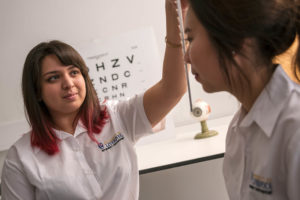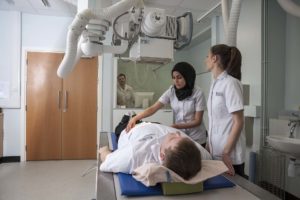How you'll learn
Your learning starts with a four-day block workshop, which runs in September and January each year. You then complete your independent research project under the guidance of an appropriate supervisor. You can liaise with your research supervisor to develop a study plan that works for you both e.g. face to face meetings, online meetings, or a combination.
The Directorate staff have a very wide range of expertise including medical physics in radiotherapy, computer treatment planning, imaging in radiotherapy, general cancer care and strategic planning of cancer services locally and nationally. The Directorate also has its own CTSim, treatment planning system, patient management information system and a virtual environment in radiotherapy (VERT) system. These facilities will allow supervisors to support students on the MSc in Radiotherapy in a diverse range of dissertations.
How you're assessed
The fully online MSc consists of one 60 credit dissertation module which can only be undertaken after completion of the 120 credit Postgrdauate Diploma in Radiotherapy (or its equivalent from other UK institutions).
Liverpool Hallmarks
We have a distinctive approach to education, the Liverpool Curriculum Framework, which focuses on research-connected teaching, active learning, and authentic assessment to ensure our students graduate as digitally fluent and confident global citizens.
The Liverpool Curriculum framework sets out our distinctive approach to education. Our teaching staff support our students to develop academic knowledge, skills, and understanding alongside our graduate attributes:
- Digital fluency
- Confidence
- Global citizenship
Our curriculum is characterised by the three Liverpool Hallmarks:
- Research-connected teaching
- Active learning
- Authentic assessment
All this is underpinned by our core value of inclusivity and commitment to providing a curriculum that is accessible to all students.









